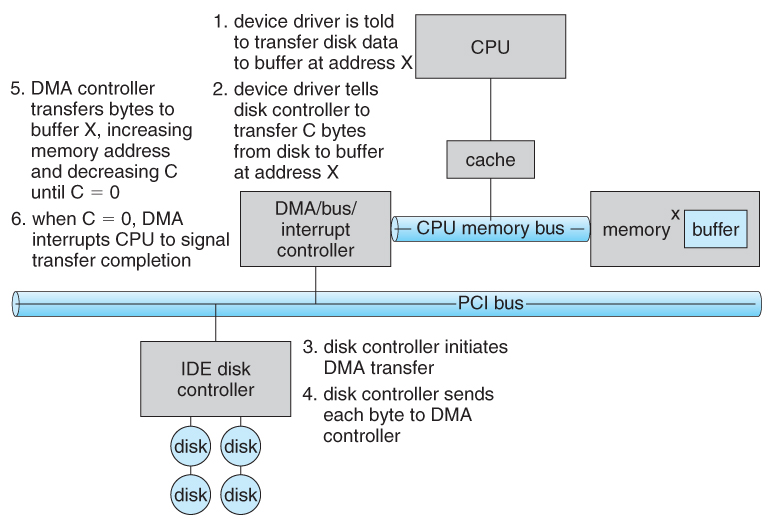I/O Handling Methods: DMA I/O
- Pros: When no errors or interrupts happen, the CPU is not responsible for anything that has to do with handing I/O besides deligating I/O jobs to the DMA and noticing when I/O activity occurs/ends. This lets the CPU concentrate its power to running instructions of other programs to an even greater extent compared to interrupt driven I/O.
Cons: The DMA chip is useful only for casual I/O fetching and writing, but when I/O-related failures happen, only the CPU is responsible for fixing them and resuming normal activity, which reduces the CPU's performance.
Steps in a DMA transfer. Taken from Bell, John T. "I/O Systems." University of Illinois, Chicago.
